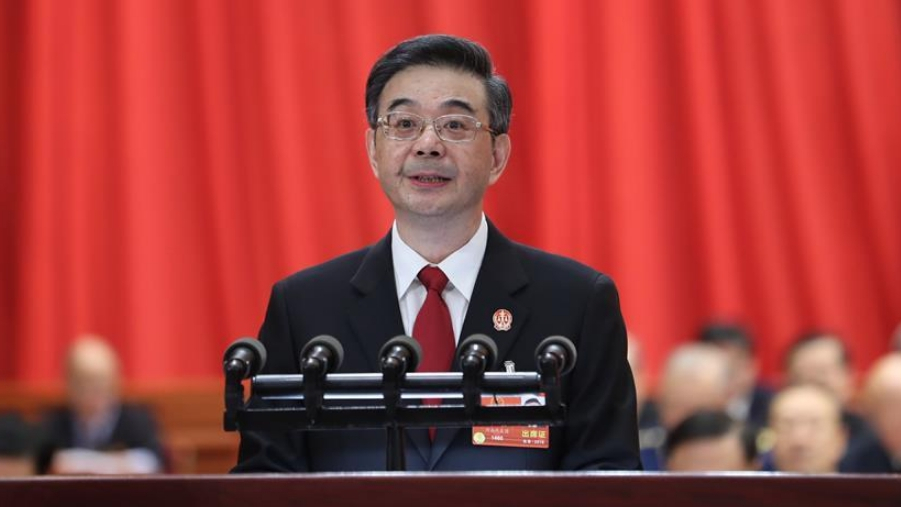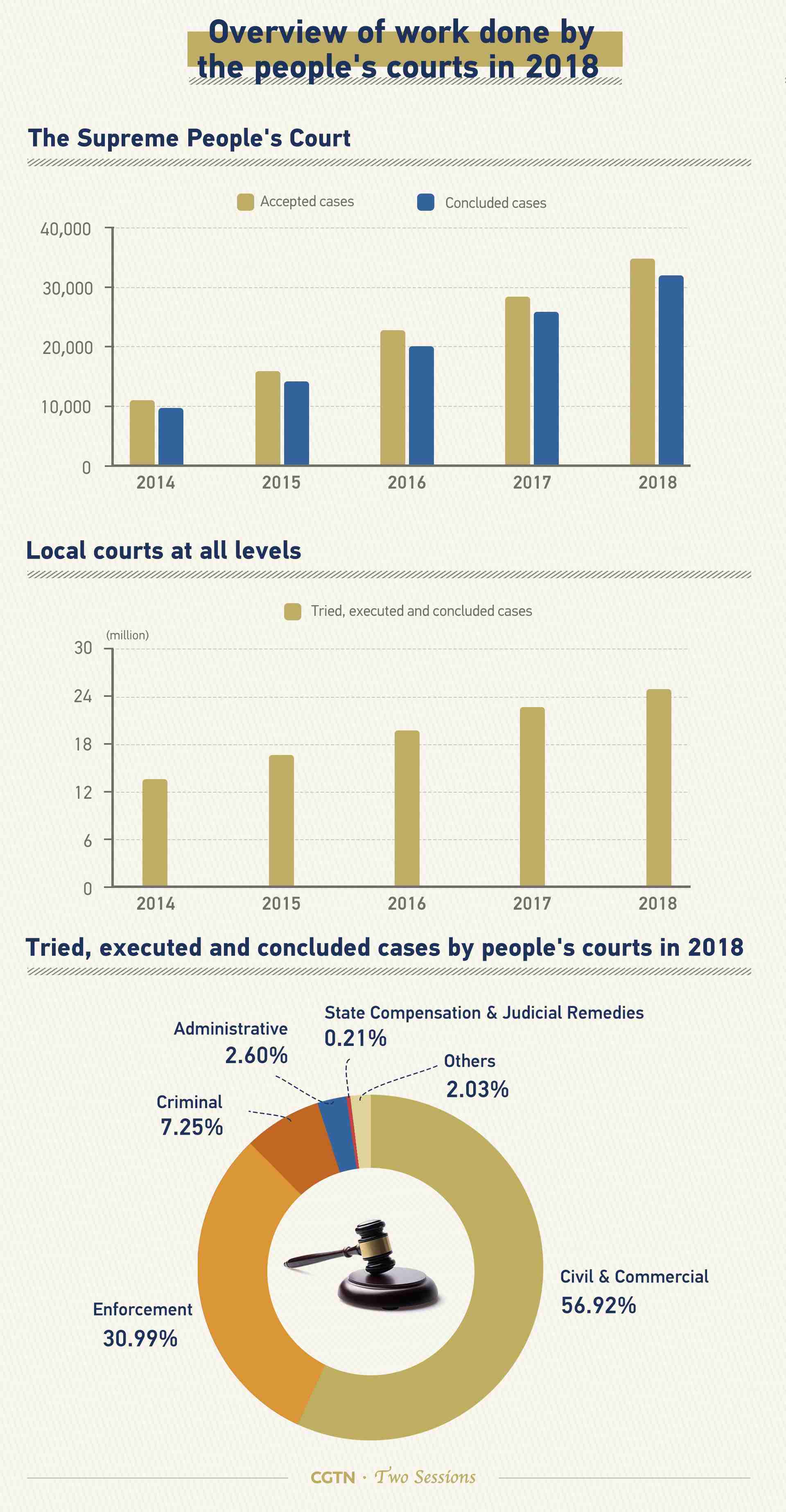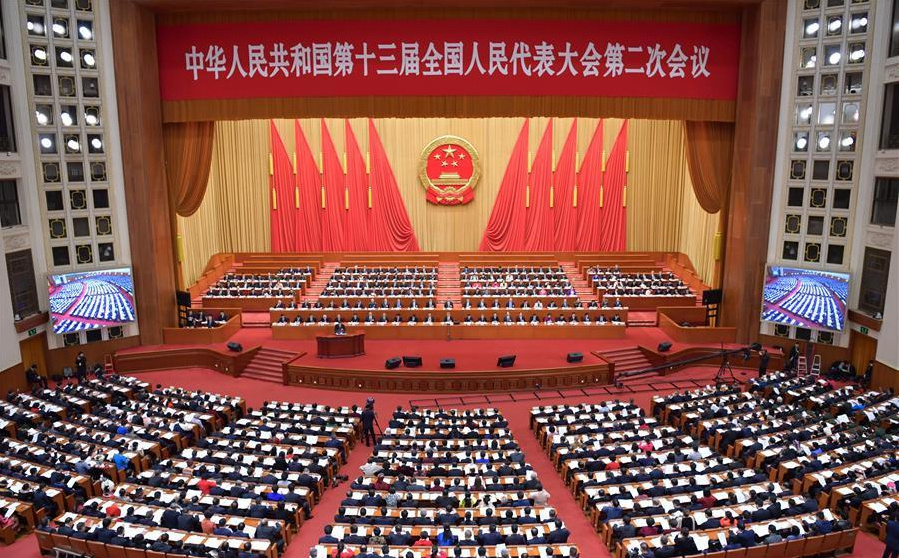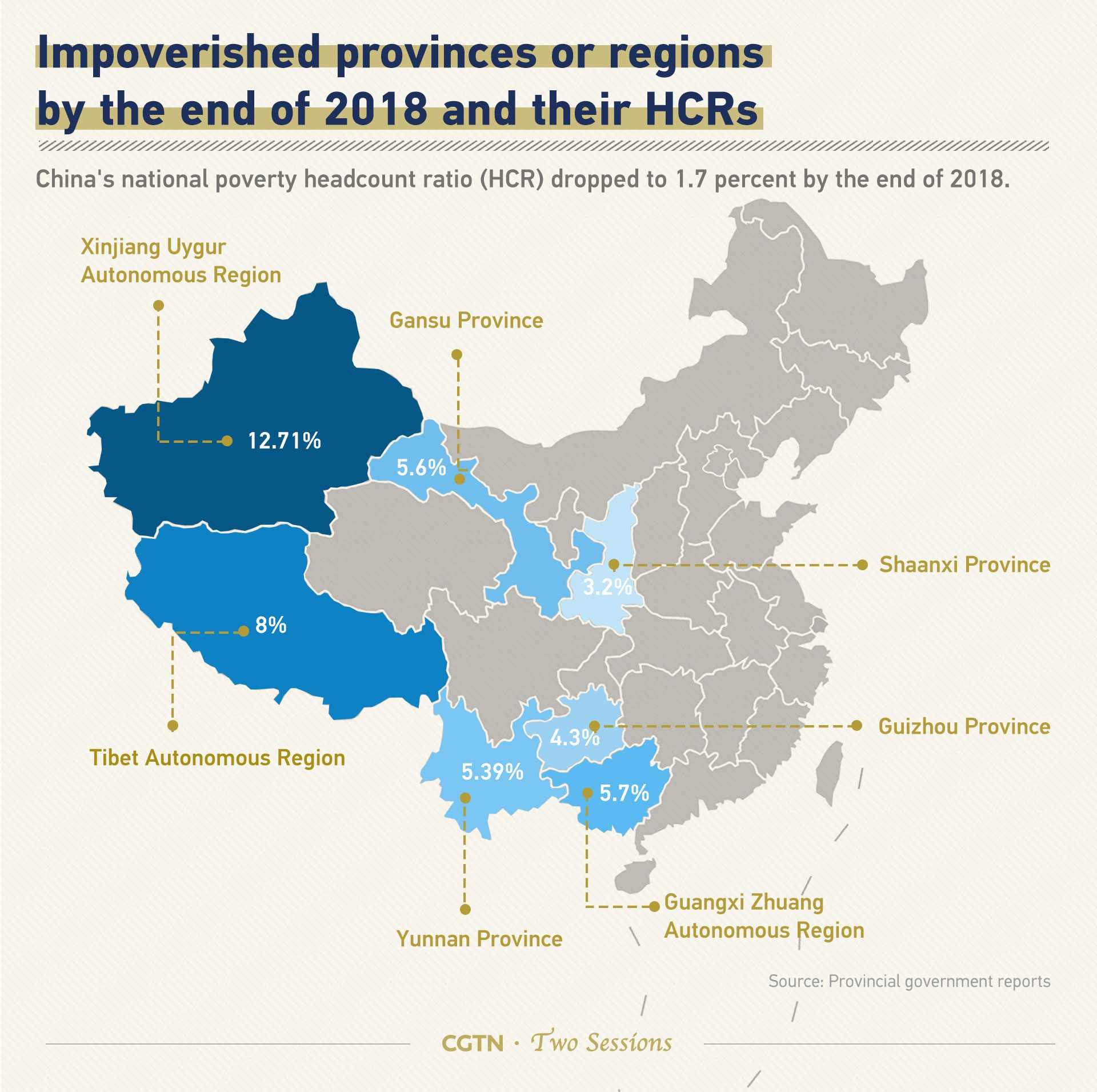
Domestic
11:46, 12-Mar-2019
SPC to make more efforts to help win 'three tough battles'
Updated
21:40, 12-Mar-2019
By Wang Mengjie, Zhao Hong
02:28

The Supreme People's Court (SPC) of China handled 34,794 cases in 2018 and concluded 31,883 cases, up 22.1 percent and 23.5 percent year-on-year respectively, the court said in a work report.
Courts at local levels handled 28 million cases and concluded 25.168 million cases, up by 8.8 percent and 10.6 percent respectively from 2017, according to the report.
Chinese Chief Justice Zhou Qiang delivered the work report at a plenary meeting of the ongoing second session of the 13th National Peoples Congress Tuesday morning.

The judiciary also endeavors to serve the country's all-round opening-up, the Belt and Road Initiative, and high-quality development.
"The top court has punished crimes, protected the people, and resolutely safeguarded national security and social stability in accordance with law," Zhou said.
Read more:
'Three tough battles'
The SPC concluded 22,360 cases concerning peer-to-peer lending (P2P) and properly handled disputes over online lending and assignment of distressed claims involving financial institutions in 2018.
In terms of financial security, defusing systematic financial risks has been prioritized. Regulatory policies have also been rolled out for hidden debt-related risks.

The third plenary meeting of the second session of the 13th National People's Congress (NPC) is held at the Great Hall of the People in Beijing, March 12, 2019. /Xinhua Photo
The third plenary meeting of the second session of the 13th National People's Congress (NPC) is held at the Great Hall of the People in Beijing, March 12, 2019. /Xinhua Photo
In 2019, SPC will continue fighting the "three tough battles" of critical risks, poverty, and pollution to meet the goal of delivering a moderately prosperous society by 2020.
Smart court
Through the establishment of leading groups and the joint ministerial meeting system, the SPC provided a favorable environment for resolving enforcement difficulties in 2018.
The SPC will further enhance transparency of court proceedings and legal documents using technology and improving the buildings of modern smart courts.
The court will promote the development of a networked, transparent and intelligent people's court information system, and support online handling of all businesses.

In addition, the judiciary has been exploring a new mode of Internet justice at the international level.
The "Peppa Pig" case is an example. Last August, the Hangzhou Internet Court adjudicated a copyright infringement case and ordered two offending Chinese companies to compensate for the economic loss of British animation "Peppa Pig" character's copyright owners.
Corruption crimes
Amid unwavering resolve to bring corrupt officials to justice, Chinese courts concluded 28,000 graft cases involving embezzlement, bribery, and dereliction of duty last year.
Among the 33,000 people involved were 18 former officials at the provincial level and above. Meanwhile, 32 such former high-ranking officials, including Sun Zhengcai and Wang Sanyun, were charged.
Sun is former Party chief of southwest China's Chongqing Municipality, who was sentenced to life in prison last May for taking bribes of over 170 million yuan (25.29 million U.S. dollars). Meanwhile, Wang, former Party chief of Gansu Province, stood trial in October, accused of using his position to receive bribes.

China holds a grand military parade at Zhurihe training base in northern China's Inner Mongolia Autonomous Region in celebration of the 90th birthday of the Chinese People's Liberation Army (PLA), July 30, 2017. /VCG Photo
China holds a grand military parade at Zhurihe training base in northern China's Inner Mongolia Autonomous Region in celebration of the 90th birthday of the Chinese People's Liberation Army (PLA), July 30, 2017. /VCG Photo
A total of 2,466 people who had offered bribes were convicted last year amid a heavier crackdown on such crime.
Military personnel
The SPC concluded 18,883 cases involving the termination of military-provided paid services in 2018, which protected the legitimate rights and interests of military personnel and their families.
Military's paid services generally refer to those provided by the armed forces such as kindergarten education, publishing services, and real estate rentals to the civilian sector.
Such work is a major decision aiming to strengthen the armed forces as well as an important part in reforming national defense and the armed forces.
(With inputs from Xinhua)

SITEMAP
Copyright © 2018 CGTN. Beijing ICP prepared NO.16065310-3
Copyright © 2018 CGTN. Beijing ICP prepared NO.16065310-3